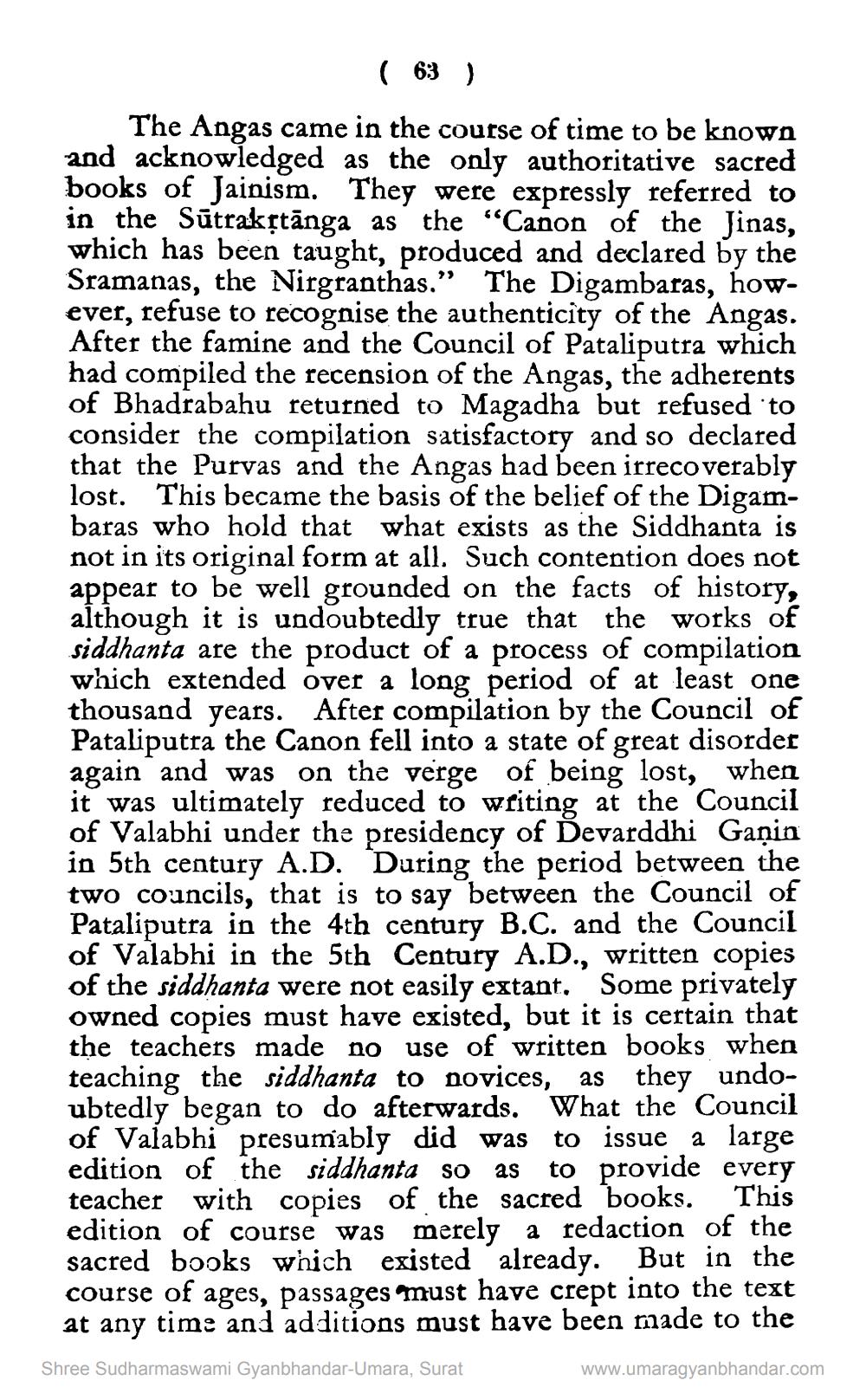________________
( 63 )
The Angas came in the course of time to be known and acknowledged as the only authoritative sacred books of Jainism. They were expressly referred to in the Sūtrakṛtānga as the "Canon of the Jinas, which has been taught, produced and declared by the Sramanas, the Nirgranthas.' The Digambaras, however, refuse to recognise the authenticity of the Angas. After the famine and the Council of Pataliputra which had compiled the recension of the Angas, the adherents of Bhadrabahu returned to Magadha but refused to consider the compilation satisfactory and so declared that the Purvas and the Angas had been irrecoverably lost. This became the basis of the belief of the Digambaras who hold that what exists as the Siddhanta is not in its original form at all. Such contention does not appear to be well grounded on the facts of history, although it is undoubtedly true that the works of siddhanta are the product of a process of compilation which extended over a long period of at least one thousand years. After compilation by the Council of Pataliputra the Canon fell into a state of great disorder again and was on the verge of being lost, when it was ultimately reduced to writing at the Council of Valabhi under the presidency of Devarddhi Gaṇin in 5th century A.D. During the period between the two councils, that is to say between the Council of Pataliputra in the 4th century B.C. and the Council of Valabhi in the 5th Century A.D., written copies of the siddhanta were not easily extant. Some privately owned copies must have existed, but it is certain that the teachers made no use of written books when teaching the siddhanta to novices, as they undoubtedly began to do afterwards. What the Council of Valabhi presumably did was to issue a large edition of the siddhanta so as to provide every teacher with copies of the sacred books. This edition of course was merely a redaction of the sacred books which existed already. But in the course of ages, passages must have crept into the text at any time and additions must have been made to the
Shree Sudharmaswami Gyanbhandar-Umara, Surat
www.umaragyanbhandar.com




